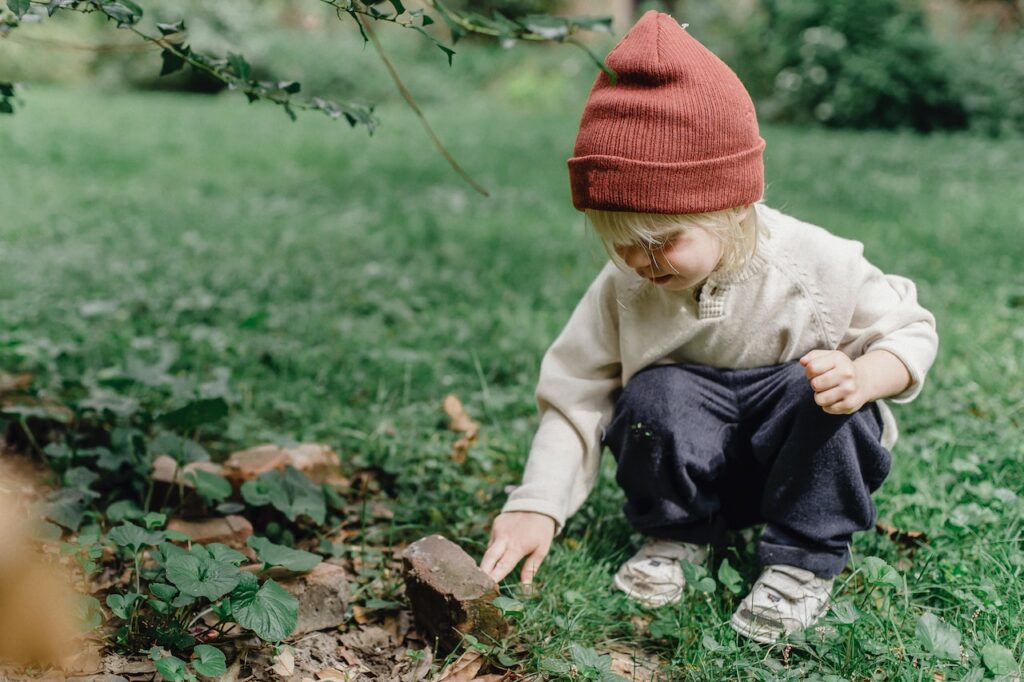Building resilience is something that a lot of people tend to reserve for adults, and generally overlook a child’s need to develop emotional strength. This is predominantly due to their carefree nature and their ability to adapt and roll with the punches. But this early resilience isn’t actually ‘resilience’ but a product of their youth growing up when they don’t know any different. But negative experiences and trauma can still have a significant effect on their mental health and mindset, and this can stay with them through adolescence and adult life. Finding ways to build your child’s resilience will give them the tools to overcome life’s adversities and help them mature into strong and successful adults.
Resilience isn’t something that one child is born with and another not, but a skill that is developed and honed as you grow. In fact, resilience is more like a muscle, the more you exercise it the stronger it gets. Kids with a resilient resolve are more likely to take healthy risks as they have no fear of falling short of expectations and are often more trusting of their natural instincts.
Over the last few decades, there has been growing concern around children’s mental health, with one in eight children aged between 5 and 19 displaying mental health conditions. Finding activities to build emotional resilience in children is now, more than ever, a key component of their upbringing as the pressures continue to grow exponentially. Whether it’s school stress, bullying, the impact of social media, or a difficult home life, the pressures that children are facing are continuing to rise. Being able to bounce back and maintain a healthy mindset is a tool that will help them deal with life’s challenges and stay with them throughout their adult life.
Resilience in children
Resilience in children, just like in adults, is the ability to get up and brush themselves off when life knocks you down. We don’t mean just after a tumble in the playground, but when life throws us some unexpected challenges, resilience is the ability and confidence to bounce back and find a solution without letting it weigh you down.
In children, resilience is a little harder to spot and many of the challenges and traumas they face fly under the radar. It’s important to remember that adults aren’t always aware of the impact that certain situations can have on a child and their mindset so incorporating resilience-boosting tricks into their daily development is critical to make sure that they have the tools they need to be curious, learn, play, and develop into a well-rounded individual.
Dr. Ginsburg, a child paediatrician and human development expert suggests that there are 7 components that make up resilience in children:
- Competence– the ability to handle challenging situations successfully.
- Confidence– the belief in their own abilities.
- Connection– close ties to family and friends.
- Character– a strong sense of self worth and the confidence to stick to their values.
- Contribution– contributing to the bigger picture and understanding their importance.
- Coping– having a well-rounded collection of coping tools.
- Control– understanding they have control over their decisions and actions.
Try as we might, parents can’t protect their children from all the obstacles that come their way, and nor should they. Children need to face adversity to learn how to cope, otherwise, life is going to get really tough for them once they reach their teen years and adult life. But what you can do, is incorporate these resilience-building activities into their daily routine and watch them blossom into strong and capable little people.
Activities to build emotional resilience in children
Getting a bouncy, bubbly child to slow down and take some time to reflect can feel like a struggle at times when all they really want to do is run off and play. Instead of sitting them down and talking to them about resilience, there are lots of easy and fun ways to incorporate resilience techniques into their playtime and daily routines. Before you start using any of the following tips, make sure your child has a well-established and consistent daily routine and is getting a good night’s sleep each night. Tiredness is one of the main factors when it comes to children with mental health conditions, so promoting a good and restful night’s sleep through a healthy bedtime routine will set you up well for the rest of these tools.
Build connections
As Dr. Ginsburg discusses, a child with lots of healthy connections to other people. Having a support network made up of peers and family members will give them to confidence to get stuck in and tackle their challenges as they feel supported by those around them. It also helps them to build the pivotal skills of listening and empathy. There are so many ways you can help your children build positive connections, whether that’s playing in the park, after school clubs, organising play dates with other parents, or ensuring they have regular chances to chat with other family members, even if that’s over the phone or through video chat.
Ask questions instead of fixing it for them
When a child comes up to you with a problem, the natural urge is to fix it for them. But instead of coming to their rescue, help them find the solution themselves by asking questions. By turning the problem back to them and guiding them with some helpful questions and a few hints, you’ll be helping your child process the problem and come up with a solution. This will not only give them the confidence to tackle future problems on their own but is also exercising their problem-solving skills at the same time.
Label emotions
Teaching your children that it’s OK to experience different emotions, even negative ones, will help them to cope with them as they arise. Instead of seeing them as something to be afraid of, giving them names and labelling their emotions will help your children to acknowledge and make sense of what they’re feeling. To make it more fun and engaging, you can even give each emotion a different name, like Bob, rather than labelling it as anxiety. By saying hi to Bob and accepting his presence, they learn to be comfortable with different emotions, rather than letting it spiral them out of control.
Teach them calming strategies
Starting children young with breathing exercises will really help them when they’re faced with a tricky situation, and you aren’t there to give them support. The true test of resilience is being able to handle a challenge on your own if need be. Giving them the tools to calm themselves down and see the situation clearly can be done through breath work, just like in adults. Ask your child to breathe in like they’re smelling a yummy cookie, and breath out like they’re gently blowing away a feather.
Much like mindfulness exercises, ask your children to focus on each of their body parts in turn and ask them to relax, or give them a wiggle. This is a great grounding technique that will slowly introduce checking in with their bodies and understanding what they need in that situation. Another trick is to ask them to picture their favourite scene, or a scene they find relaxing, and then ask them to describe it out loud for you.
Promote healthy risk-taking
In a world where everything is made ‘safe’ for children, it’s important to let them explore outside of their comfort zones. This doesn’t mean doing something reckless or leaving them to their own devices, but something like trying a new sport, auditioning for a school play, or going over to talk to a new person. When children avoid taking risks, they are internalising the message that they aren’t capable or strong enough to handle challenges. Learning to push themselves and getting back up if it doesn’t go to plan is a great way for them to build confidence in themselves and their abilities.
Teach positive self talk
Teaching your child how to talk to themselves is just as important as teaching them how to speak to others. You wouldn’t be happy if your children to said mean things to a peer in the playground, so it’s an important lesson to teach them not to talk to themselves like that. Pop them down in front of the mirror and ask them to say things that they like about themselves. Make sure you’re also replacing any negative sentences like ‘I can’t do that’ or ‘nobody likes me’ with positive ones.
Teach problem-solving skills through games
A resilient child will have confidence in their own ability to work things out for themselves, so finding fun and engaging ways to teach them to exercise their problem-solving muscles is a great way to fine-tune their skills. As children have a much shorter attention span than adults, the tasks need to hold their focus and keep them entertained. In fact, a child’s attention span is approximately 2 or 3 times their age, so a child of 5 will only be able to stay focused for roughly 15 minutes. That’s where games come in handy, if something feels more like fun than it does learning, they’ll be better able to stay attentive.
Board games are a great way to not only promote problem-solving skills but also delayed gratification, another important element of resilience. Board games require impulse control, waiting their turn, and playing fairly, as well as helping them work problems out for themselves.
It’s never too early to start children on the affirmations path, so why not download the Morale App? Even if your child doesn’t have a phone yet, they can still benefit from the use of positive affirmations to build their self esteem and help them develop their resilience. Being a parent is tough, so we’re sure there are tonnes of parents in the playground or at after-school clubs who would really benefit from a few words of support and encouragement. Add them to your network and send out daily affirmations to boost their mental health and your own.
Download the app from Google Play or Apple’s App Store.
We’re all about good vibes over on our social media so go and hit the follow button to make sure you never miss a beat and get your daily dose of Morale’s mental health tips and tricks.
We’re all ears when it comes to feedback and we never say no to a chat, so why not send us an email to contact@moraleapp.co?











